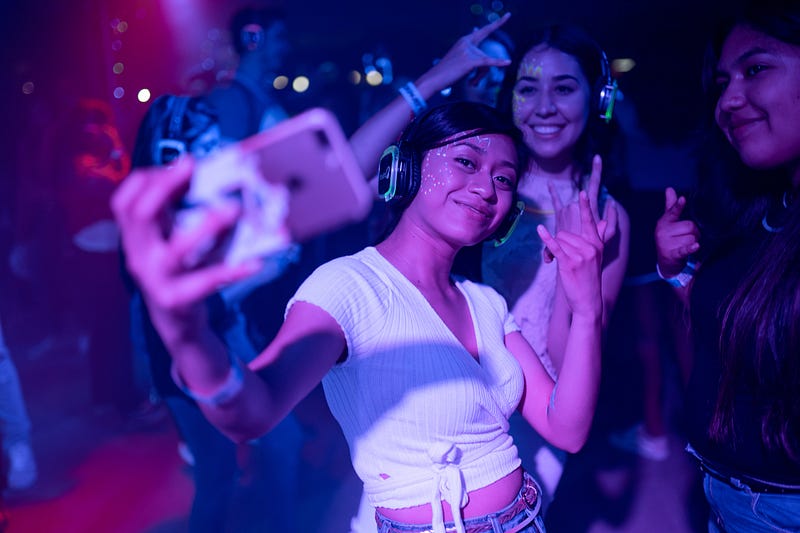Exploring MDMA Therapy for Social Anxiety: A New Frontier
Written on
Understanding Social Anxiety and MDMA Therapy
Recent studies have highlighted the potential of MDMA therapy, primarily recognized for its effectiveness in treating PTSD, and now researchers are exploring its application for social anxiety disorder (SAD).

MDMA has garnered attention as a safe and effective treatment for PTSD, but its therapeutic uses may extend to other psychological conditions, including social phobia. This brings us to a critical question: What exactly is social anxiety?
Section 1.1 Defining Social Anxiety
Social Anxiety Disorder is characterized by an intense fear of social situations. This fear can manifest in various scenarios such as:
- Interactions in crowds or groups
- Public speaking engagements
- Situations involving authority figures
- Encounters with strangers
- Being the focal point of attention
For instance, at my most anxious, I found it difficult to even board a bus, fearing the attention I would attract while finding a seat. This illustrates how irrational phobias can be.
Symptoms of Social Anxiety Include:
- Overwhelming fear in social settings, often leading to avoidance.
- Anxiety over the possibility of making mistakes or facing social judgment.
- Regret over past social interactions, focusing on perceived flaws.
- Reluctance to engage with strangers due to fear of embarrassment.
It's important to distinguish between social anxiety and introversion. While introverts may choose to avoid social gatherings to escape overstimulation, those with social anxiety experience debilitating fears that can lead to avoidance behaviors.
Section 1.2 The Role of MDMA in Therapy
Researchers have identified the core of social anxiety as the overwhelming fear of being judged or scrutinized in social situations. People often bypass social opportunities due to this fear.
MDMA, commonly known as a party drug, elicits feelings of heightened empathy, compassion, and love—qualities that could enhance therapeutic settings. By redirecting these feelings inward, individuals may begin to alter their self-perception positively.
For those with PTSD, MDMA facilitates the processing of traumatic memories within a safe environment, enabling individuals to confront painful experiences without overwhelming distress. This therapeutic approach could similarly benefit those grappling with social anxiety.
Understanding the Roots of Social Phobia
Phobias typically stem from traumatic experiences, often beginning in childhood. For example, a friend of mine developed a phobia of spiders after a traumatic incident linked to an abuser, which subsequently created a lasting fear of arachnids.
Applying this to social anxiety, a single distressing experience can lead to an aversion to social interactions. Unlike spiders, people are harder to avoid, leading to missed opportunities and social isolation.
Chapter 2 Investigating MDMA's Efficacy for Social Anxiety
The theoretical framework for using MDMA in treating social anxiety mirrors its application in PTSD therapy. By identifying and reprocessing the root memories associated with social fears under the compassionate influence of MDMA, there is potential for significant breakthroughs.
However, challenges arise in pinpointing the specific memories linked to social anxiety, as they often stem from childhood and may not be readily accessible to adult recollection. What may seem trivial to adults could be deeply traumatic for a child, complicating the therapeutic process.
Researchers have proposed three primary avenues for how MDMA may aid those with social anxiety:
- Assisting in the reprocessing of memories tied to social fears.
- Enhancing the therapeutic relationship, which can be challenging for socially anxious individuals who may fear judgment from their therapist.
- Promoting self-compassion and reducing self-criticism, issues frequently faced by those with social anxiety.
Study Overview
A new study is set to take place in Portland, Oregon, focusing on participants diagnosed with social anxiety. The research will encompass 11 therapy sessions over several months, featuring an initial two-day MDMA-assisted session for some participants. All individuals involved will eventually receive MDMA-assisted therapy.
To date, over 1,775 individuals have participated in MDMA research without any recorded fatalities or severe adverse effects. The study is currently seeking English-speaking participants aged 18-65 who experience social anxiety.
For those contemplating self-medicating with MDMA, it is crucial to consider the associated risks and to approach this option with caution.
If You’re Considering MDMA for Therapy, Read This First
While the potential benefits of MDMA therapy are promising, it is essential to be aware of the inherent risks involved.